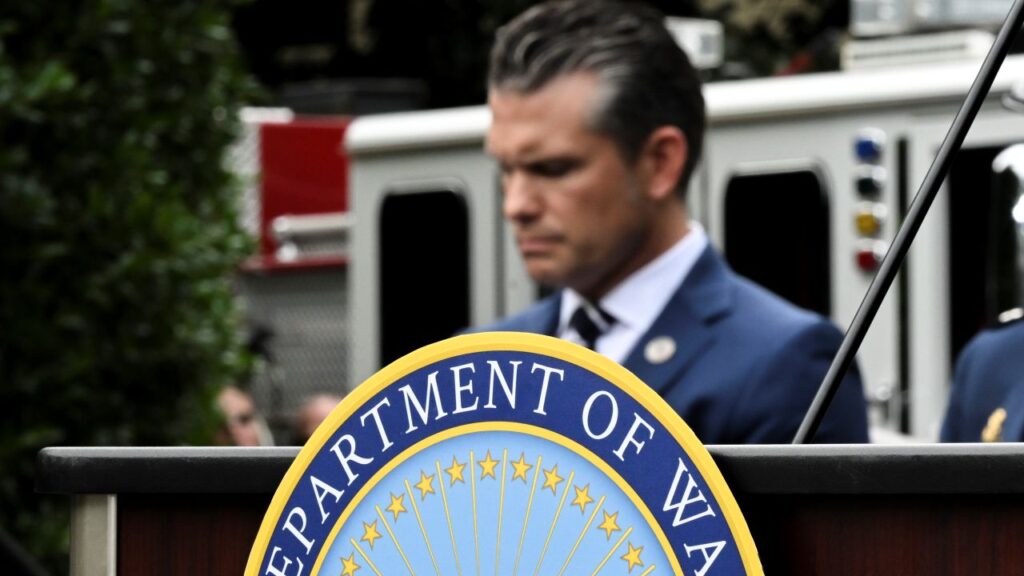Share
WASHINGTON — The Supreme Court’s conservative majority seems prepared to allow the Trump administration to end a program that allows some immigrants to work legally in the United States and protects them from deportation.
There did not appear to be any support among the five conservatives in extended arguments Tuesday for blocking the administration’s decision to wind down the Deferred Action for Childhood Arrivals program. It currently protects 660,000 immigrants who came to the United States as children and are here illegally.
Chief Justice John Roberts and Justice Brett Kavanaugh were among the justices who indicated that the administration has provided sufficient reason for wanting to do away with the program. Justices Neil Gorsuch and Samuel Alito raised questions about whether courts should even be reviewing the executive branch’s discretionary decisions.
The high court’s decision is expected by June, at the height of the 2020 presidential campaign.
The program was begun under President Barack Obama. The Trump administration announced in September 2017 that it would end DACA protections, but lower federal courts have stepped in to keep the program alive.
President Donald Trump tweeted Tuesday that if the Supreme Court overturns the immigrants’ protections “a deal will be made with the Dems for them to stay!” But Trump’s past promises to work with Democrats on a legislative solution for these immigrants have not led to an agreement.
Many of the people in DACA, no longer very young, are far from “angels.” Some are very tough, hardened criminals. President Obama said he had no legal right to sign order, but would anyway. If Supreme Court remedies with overturn, a deal will be made with Dems for them to stay!
— Donald J. Trump (@realDonaldTrump) November 12, 2019
Trump said in his tweet that many program participants are “far from ‘angels,” and he falsely claimed that “some are very tough, hardened criminals.” The program bars anyone with a felony conviction from participating. Serious misdemeanors may also bar eligibility.
‘This Is About Our Choice to Destroy Lives’
Justice Sonia Sotomayor made the only direct reference to Trump, saying he told DACA recipients “that they were safe under him and that he’d find a way to keep them here. And he hasn’t.”
She also complained that the administration’s rationale has shifted over time and that it has mainly relied on the view that DACA is illegal, leaving no choice but to end it.
In her most pointed comment, Sotomayor said the administration has failed to plainly say, “This is about our choice to destroy lives.”
Solicitor General Noel Francisco, Trump’s top Supreme Court lawyer, did not directly respond to Sotomayor. But near the end of the 80-minute arguments, he asserted that the administration has taken responsibility for its decision and is not relying only on its belief that DACA is illegal. “We own this,” Francisco said.
Roberts, who could hold the pivotal vote on the court, aimed his few questions at lawyers representing DACA recipients and their supporters. He did not seriously question the administration’s argument.
However, in June the chief justice surprised many observers when he cast the deciding vote to prevent the administration from adding a citizenship question to the 2020 census, despite not voicing much skepticism during arguments in the case.

Congress Could Follow up by Putting the Program on Surer Legal Footing
Some DACA recipients who are part of the lawsuit against Trump’s action were in the courtroom for the arguments. Many people camped out in front of the court for days for a chance at some of the few seats available to the general public. Roberts rejected a request to provide live or same-day audio of the arguments. The court will post the audio on its website on Friday.
If the court agrees with the administration in the DACA case, Congress could follow up by putting the program on surer legal footing. But the absence of comprehensive immigration reform from Congress is what prompted Obama to create DACA in 2012, giving people two-year renewable reprieves from the threat of deportation while also allowing them to work.
Federal courts struck down an expansion of DACA and the creation of similar protections for undocumented immigrants whose children are U.S. citizens.
Trump’s anti-immigrant rhetoric was a key part of his presidential campaign in 2016, and his administration pointed to the invalidation of the expansion and the threat of a lawsuit against DACA by Texas and other Republican-led states as reasons to bring the program to a halt.
Young immigrants, civil rights groups, universities and Democratic-led cities and states sued to block the administration. They persuaded courts in New York, San Francisco and Washington, D.C., that the administration had been “arbitrary and capricious” in its actions, in violation of a federal law that requires policy changes to be done in an orderly way.



















